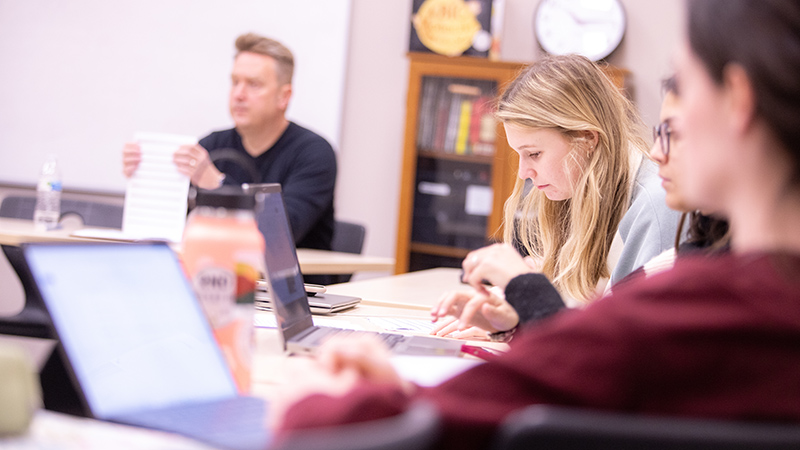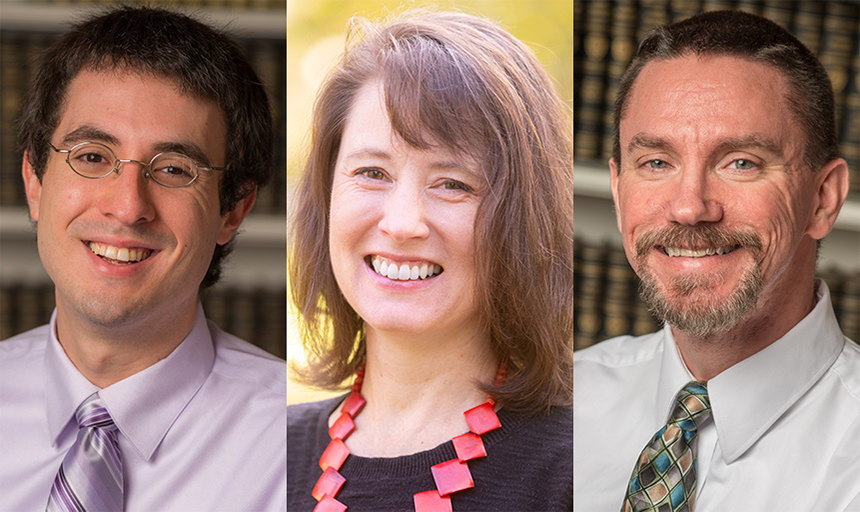Master of Education (M.Ed.)
Available as a master program
Are you ready to rejuvenate your professional journey by developing your intellectual curiosities? Are you interested in addressing complex social problems in governmental, non-governmental, and non-profit spaces? Are you a professional educator looking to deepen your understanding or expand your influence in of the field of education? Are you interested in pursuing a career in higher education? Open to those with and without an education undergraduate degree, Roanoke’s M.Ed. offers a space for you to freely explore your curiosity and questions among educators and scholars from your community by validating, developing, and deepening your expertise. Make the M.Ed. at Roanoke College YOURS by shaping your inquiry around what drives you.
The Master’s degree offers the advanced study of pedagogy, curriculum, and emerging topics in education, as well as a more in-depth exploration of educational theory and research. While not a licensure program, you will primarily engage in secondary research, or practitioner research and projects, which could be literature, curricular, application/implementation, and action-based. This kind of research will prepare you for roles within conventional settings and also beyond the classroom for positions such as community-based educators, curriculum developers, or educational consultants.

Why choose Roanoke?
-
Innovative Classes
Engage with innovative research, explore a rich variety of course offerings, and enhance your expertise in education.
-
Community Focus
Engage with local and regional educational initiatives.
-
Faculty Mentors
Build on your existing knowledge with the support of our faculty who are dedicated to your success, providing mentorship and guidance every step of the way.
-
Flexible Pacing
Designed for adult learners, our program offers full and part-time enrollment to help you balance your studies with your career and personal life.
Program Introduction
Courses
Career Opportunities
Admission Requirements & How to Apply
Student Experiences
Tuition and Fees
Faculty
News
"The M.Ed. program has been an incredibly enriching experience. As a student with an undergraduate background in criminal justice, I have gained a deeper understanding of the complexities within today’s education system. Over the past semester, our coursework and discussions have challenged me to think critically about systemic issues and explore innovative ways to improve educational practices. The collaborative nature of our class conversations has been particularly rewarding, as they foster curiosity and a shared commitment to creating meaningful change in education."
Allie, a student with prior major in criminal justice

-
This interactive workshop, the first of a two-part event, is intended to train researchers to better communicate their work with people outside of their field. Folks from all programs are encouraged to attend!
- Date:
- March 27, 2026
- Time:
- 4 - 6 p.m.
- Location:
Antrim Chapel

-
Engaged in research? Consider competing in this year's Nutshell Games Competition for a chance to win an Amazon e-gift card.
- Date:
- April 21, 2026
- Time:
- 6 - 7:30 p.m.
- Location:
Antrim Chapel





